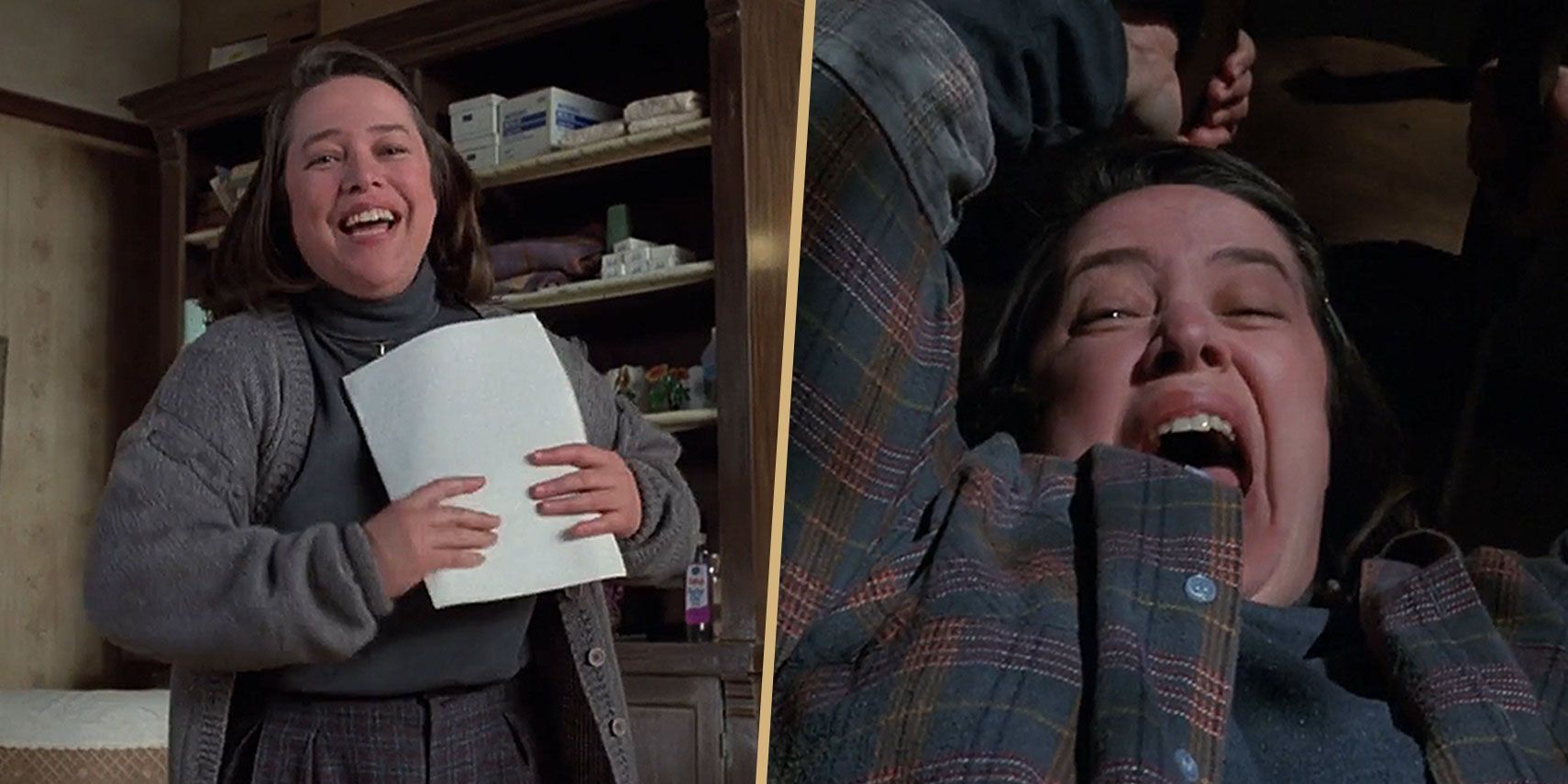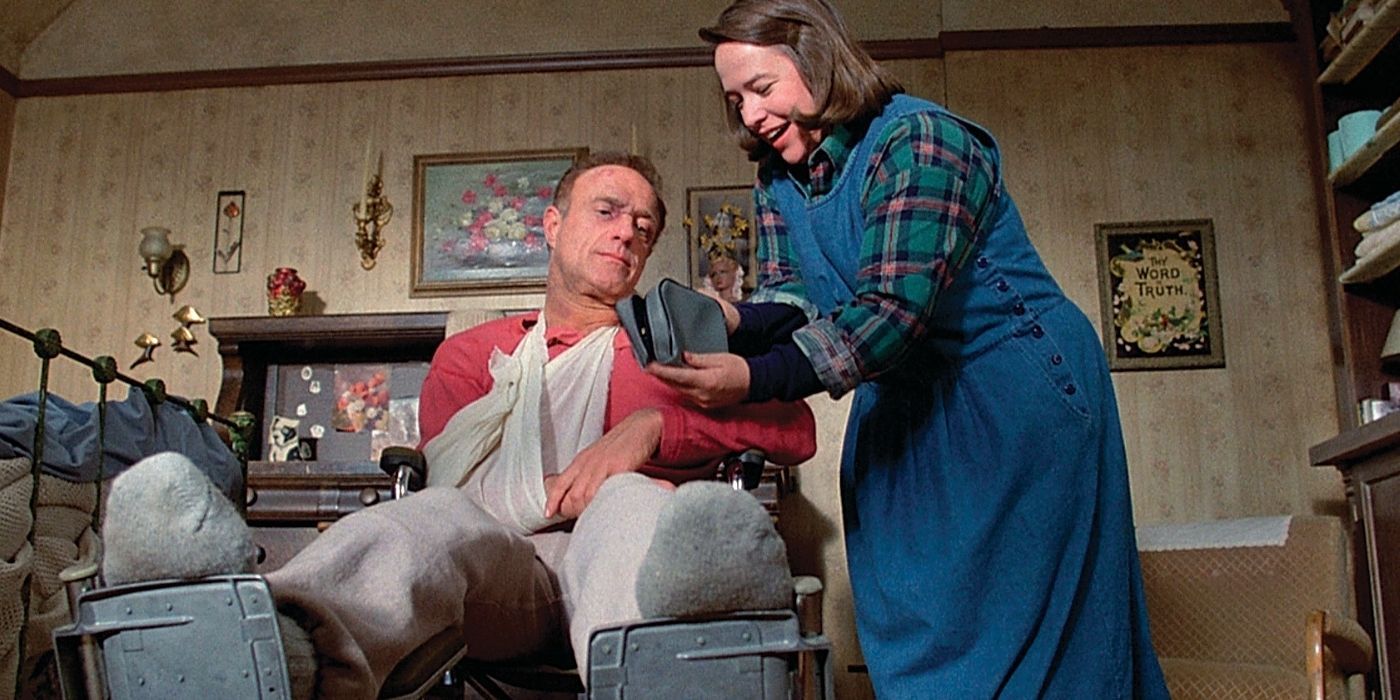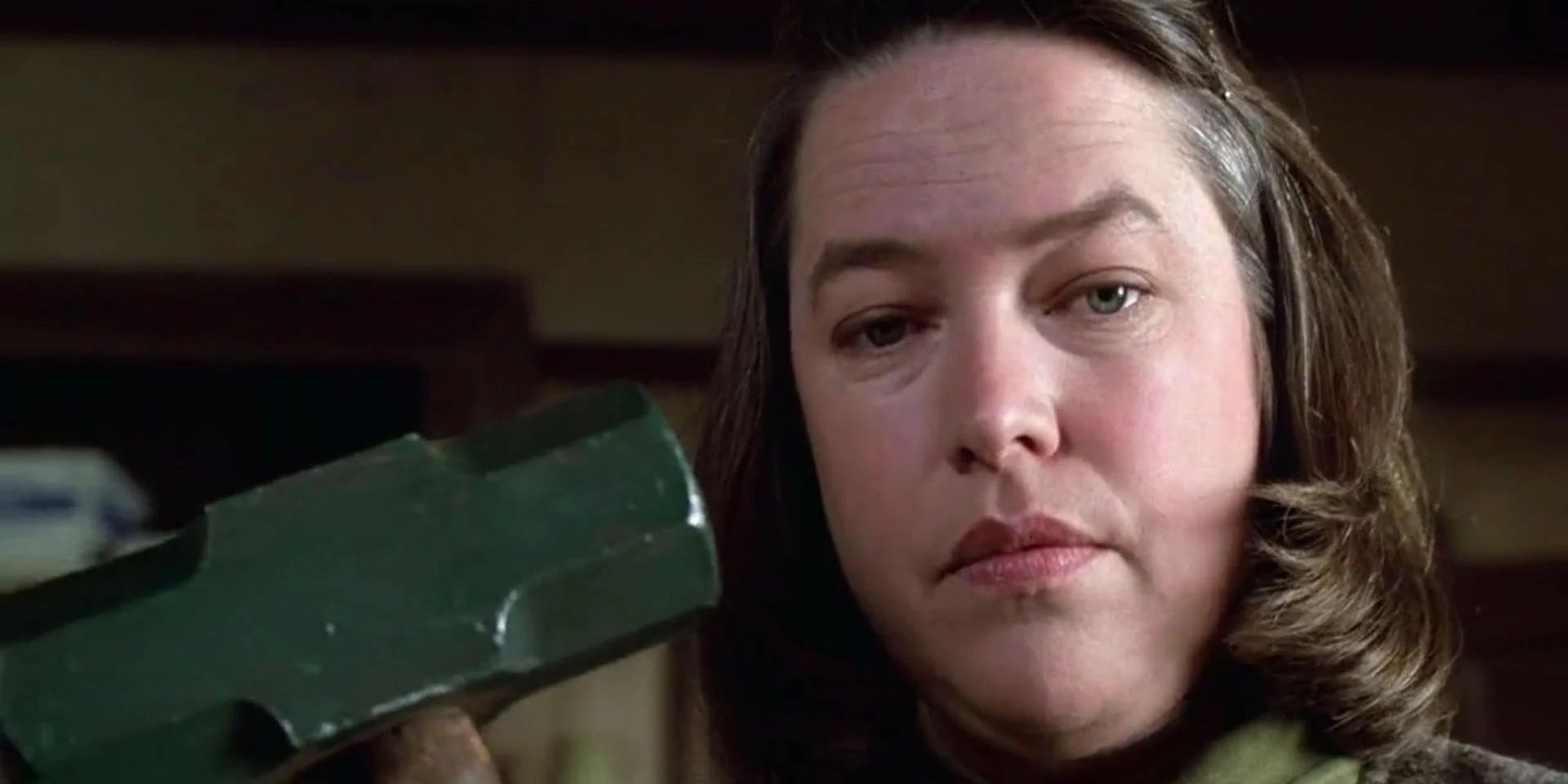Misery is a Stephen King novel that was made into a film by director Rob Reiner in 1990. Reiner also made popular movies like Stand By Me (another Stephen King adaptation) and The Princess Bride. This is one of the greatest, if not greatest, Stephen King film adaptions ever made. Its story is suspenseful, believable, and filled with iconic lines and moments. It often gets overlooked in light of The Shining, but even Stephen King himself thinks that Misery is perhaps the greatest retelling of any of his stories. Misery is also the only Stephen King film adaptation to have ever received an Oscar Award.
Stephen King wrote Misery after receiving backlash for his epic fantasy novel The Eyes of the Dragon. Stephen King became famous because of his horror fiction novels, and that's what his fans and newcomers expected to see from him whenever he would release a new book. So when he came out with something other than what fans were used to, they became upset. That was the inspiration for Misery. In Misery, the author Paul Sheldon writes a book his number one fan Annie Wilkes does not like. And she forces him to write a version she approves of.
The author said that the title of Misery serves more than one purpose, as 'misery' was also the emotion he was feeling while writing the novel. Stephen King felt trapped by his readers into writing horror novels and wanted a way of expressing his emotions and thoughts. This is probably why out of all the Stephen King horror and thriller novels the author has written, Misery is the most believable story. It seems like something that could really happen, and in a way, it was happening to King. This isn't a story about ghosts or some complex historical or psychological ideas. It's a story about obsession, control, and rage. It's a straightforward story, which allows the audience to really invest themselves in the characters and the scenes.
Misery closely follows and captures the tone of the novel very well. The film respects the author of the work and the fans of the novel, but still creates its own identity. Many people would probably say that The Shining is the best Stephen King adaptation because it is more complex than Misery. But most of the 'complex' ideas and themes from The Shining are fan theories. And much like Alfred Hitchcock, people seem to think that if Stanley Kubrick made something, then it is great by default. If anyone doesn't get it, then they are the dumb ones. Although The Shining is another fantastic slow-burn horror movie with some of the greatest acting and quotes ever seen or heard, Misery's small-scale story is better.
Right from the opening shots of Misery, the suspenseful tone is set and does not ease up till the end of the film. In fact, it slowly gets more and more suspenseful until audience members are literally so tense that they are on the edge of their seats. There's a close up shot of a cigarette and a match in the opening scene with the background noise of Paul Sheldon typing. The editing and sound design help to make even this scene suspenseful, and if rewatching the film, the cigarette and match add even more suspense to the scene once the viewer knows the end of the film.
On the topic of suspenseful scenes, there's a scene where Paul Sheldon realizes that Annie Wilkes is crazy but he cannot leave since he is not healed from his wreck yet. He gets in his wheelchair and looks around the house when Annie is out to find a way to protect himself. The audience understands the importance of Annie not finding out Paul was out of his room without having to say it. From the editing, there is so much suspense when Paul is wheeling around trying to get back into bed before Annie comes back. He makes it by a few seconds. But Paul has made a mistake in moving one of Annie's glass figurines, which the director shows by lingering on the shot of the figurine after Paul sets it back down, so the audience can catalogue this idea for later to add to the suspense.
And of course, Annie is enough of a control freak that she knows exactly where all of her hundreds of figurines should be placed. She goes into Paul's room at night and tells him she knows he's been out of his room. The suspense in this scene is palpable. When Annie breaks Paul's ankles so he can't leave her all while professing her love for him, it out-crazies the crazy of Jack Torrance from The Shining. Annie has been basically torturing Paul both physically and emotionally by making him write something he doesn't want to. So when Paul uses his typewriter (the very thing he was being forced to use in his torture) to kill Annie, it's a very theatrical ending to Annie Wilkes.
There is so much suspense in Misery that there had to be some comedic undertones to break the tension. The comedy is subtle, but without the right actors, this movie could have become very campy. Kathy Bates won an Oscar for best actress, making Misery the only Stephen King movie to have ever won such an award. Annie is such a big character, that multiple A list male actors turned down the male leading role for fear of being outshined. But James Caan performed his role perfectly as well. This Stephen King adaptation was the best for its believable story, fantastic acting, and editing so tight that it will find viewers unable to look away.



